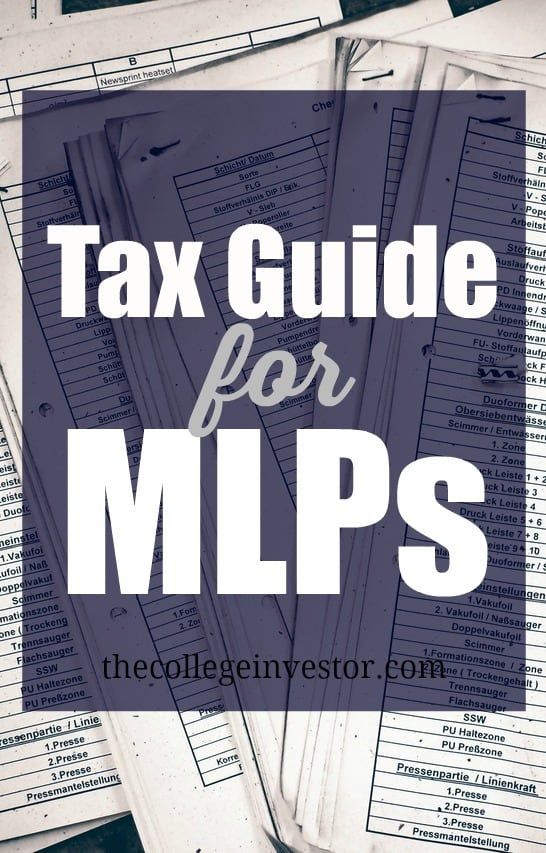
The first time I ever heard of MLPs was from my Uncle Jeff. Imagine an enormous lumberjack, with a Santa Claus beard and a penchant for stretching the truth. “You know who’s really getting rich up there in Williston? It ain’t them truck drivers. It’s them MLPs. They’re earning all this money without paying any taxes on it. If I would’ve figured that out when I was your age, I’d be a rich man now.” Crazy Uncle Jeff.
Except, it turns out he might not be as crazy as I thought. Master Limited Partnerships (MLPs) are legitimate investment vehicles. An MLP is a publicly traded investment that is taxed like a limited partnership, but can be bought and sold. MLP investment opportunities tend to be in the energy sector because 90% of the income generated by an MLP must come from exploration, mining, extraction, refining of oil and gas and the transportation of alternative fuels like biodiesel.
Because MLPs are taxed as limited partnerships, they offer some incredible benefits. They allow investors to defer income (ie, pay less now), and they are liquid investments. But, MLP investors pay a high price at tax time. MLPs give their investors K-1 forms. These are notoriously complex forms that require careful accounting (not to mention they don't typically get mailed out until March).
This post isn’t designed to replace an accountant. MLP investors should probably hire one of those. Instead, this post explains “Why” MLPs are taxed as they are, so investors don’t get blindsided with the tax implications.
Flow Through Accounting: A Collection of Business Owners
Master limited partnerships are (as the name implies) partnerships. MLP Investors are treated like business owners rather than traditional investors. That means that the MLPs taxes “flow through” to the investor (or partner).
You may own 100 shares of XYZ Pipeline, but in the eyes of the IRS, you are a business owner with X% of the pipeline (the K-1 statement will even show you what percentage partner you are).
Any income, losses, expenses, depreciation, etc. that the business incurs flow through to the Limited Partners, the investors. The IRS doesn’t look at all the partners together (like it does with a corporation), it sees all the partners as individual companies.
The most important thing to understand about flow through accounting is that investors owe taxes on their share of the profits of the company. This is true, even if the company doesn’t issue a dividend or return capital to the investors. An even more important note is, as a result, you could even owe taxes in different states based on where the business is operating. Once again, check with an accountant for details.
Tax Basis
Since the IRS treats each partner as his or her own business owner, each partner must know their “cost basis.” That way when they sell, the IRS can fairly assess capital gains or losses.
Your tax basis increases in the following circumstances:
- Profits are reinvested into the company.
- The company takes on more debt to invest.
- You put more money into the investment.
Your basis decreases in the following circumstances:
- Company has a loss.
- Company pays off debt.
- You take money out of the investment.
If you’re used to buying and selling stocks, this seems incredibly complex. That’s because it is complex. But you can’t really compare this to buying and selling stocks. Remember, investors are business partners, and this is how businesses are taxed. So you're really buying and selling a business.
Return of Capital
MLPs don’t issue dividends. Instead, the checks you get may be considered a return of capital. When you receive a “return of capital”, your basis in the investment goes down. Today, that’s awesome. You don’t have to pay any taxes.
Down the road, that free money comes back to bite. A decreased basis likely means that the IRS perceives that you’ve had higher capital gains than you actually did.
What?
Here’s an example:
You buy $100K in XYZ Pipeline MLP. Over the course of the next three years, XYZ Pipeline MLP sends you $15K in return of capital checks. You get to enjoy those checks without taxes! Yeah!
Then you sell your position for $110K. $110K (Sale Price) - $100K (Basis) = $10K in Profit. You’ll have to pay taxes on $10K, right?
Wrong. The $15K in return of capital reduced your tax basis from $100K to $85K.
$110K (Sale Price) -$85K (Basis)= $25K in profit.
What happens if you hold onto a MLP for a long time? The MLP can theoretically return all your capital which leaves you with a zero basis. If you sell, the IRS sees the sale as pure profit. At that point, any profits you receive are also fully taxable as ordinary income.
Of course, most MLPs continue to add new projects and new debt, so a zero basis is unlikely.
Depreciation Transforms Into Ordinary Income
So how is that profit going to be taxed? Most people jump to the conclusion that it will be at the capital gains rate. After all, that’s how real estate is taxed.
With MLPs, it’s more complicated. MLPs can depreciate their assets. This shelters some of their profits from income taxes. But when you sell, the IRS transforms the depreciation into an unfavorably taxed ordinary income.
Another example makes this slightly clearer.
These are the facts:
- You purchased $100K from XYZ Pipeline MLP.
- You received $15K in return of capital.
- XYZ depreciated $10K of your share of capital.
- You sell for $110K.
In this scenario, this is how you are taxed.
$110K Sales Price - $100K (Original Basis) - $15K (Return of Capital) = $25K Profit
The $25K in profit is then split into two buckets. Ordinary income and capital gains. Depreciation transforms into ordinary income when you sell. In this case, you had $10K in depreciation over the life of your investment, so the IRS taxes you at $10K of ordinary income. $25K in profit less $10K in ordinary income is $15K in capital gains.
Restrictive Loss Rules
If you’re used to the capital gains and loss rules associated with stocks and bonds, then the loss rules surrounding MLPs feel restrictive.
When selling stocks or bonds, you can “harvest” losses. That is offset gains with losses. You can even carry losses forward to future years if you have more than $3K in passive losses in a given year.
Not so with MLPs. You cannot use a loss until your MLP shows a gain for the year, or until you divest. So if your investment loses money this year, you won’t see any tax benefit until some time in the future.
It’s Not A Tax Free Investment
MLPs have multiple tax advantages, but you do have to pay taxes. The gravy train stops when you run out of capital to return, or when you sell. Keep some of the cash on hand for the inevitable taxable event.
If you understand the investment and the taxes, an MLP could be an appropriate investment for you.

Robert Farrington is America’s Millennial Money Expert® and America’s Student Loan Debt Expert™, and the founder of The College Investor, a personal finance site dedicated to helping millennials escape student loan debt to start investing and building wealth for the future. You can learn more about him on the About Page or on his personal site RobertFarrington.com.
He regularly writes about investing, student loan debt, and general personal finance topics geared toward anyone wanting to earn more, get out of debt, and start building wealth for the future.
He has been quoted in major publications, including the New York Times, Wall Street Journal, Washington Post, ABC, NBC, Today, and more. He is also a regular contributor to Forbes.
Editor: Clint Proctor Reviewed by: Colin Graves
